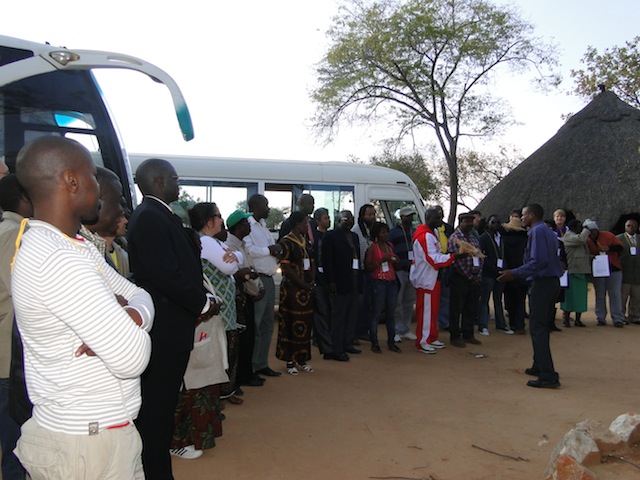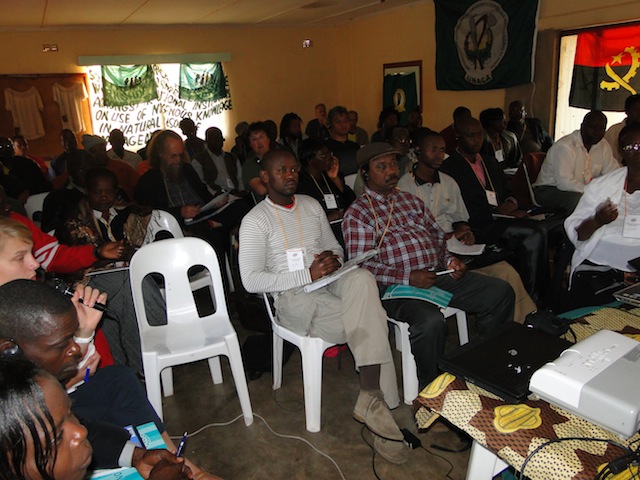African farmers gathered to discuss agroecology in Zimbabwe


(Masvingo, 13 June, 2011) – Zimbabwean farmers’ organization are hosting a training meeting on agroecology , an encounter organized by La Via Campesina (LVC) Africa in Masvingo province in Zimbabwe, from June 13 to 19. The training workshop brings together LVC member organizations in the continent, key allies including academics, NGOs, social science practioners, and small-scale farmers.
More than 50 participants, from 10 African Countries, as well as visitors from Latin America and Asia, are gathering in Masvingo to discuss and share experiences on agroecology and sustainable peasant agriculture, and organic farming and conservation agriculture practices, that keep build on local knowledge and traditional skills to work the land and produce food ecologically.
The participants of the meeting list several challenges and difficulties that affect peasant production in their countries. Among the difficulties they face is the lack of support from their governments, climate change, the interference of multinational corporations in the agricultural sector, as well as the issue of land grabbing whereby smallholder farmers lose their traditional land, finding themselves in the risk of hunger and poverty.
Other challenges include limited access to markets with decent crop prices, donors conditionality driving anti-smallholder policies, and regulations with negative impacts on peasants. These issues need to be resolved for the peasants in Africa to develop their true productive capacity.
At the end of the seven days of the training participants will come up with proposed solutions and a strategic plan which will be implemented by their organizations and the network.

In these meetings participants are expecting to create a permanent space for the exchange and strengthening of agroecological efforts carried out by LVC organizations in Africa, in order to share experiences, methodologies, educational materials and trainers, as well as to develop a strategic action and working plan on agroecology and peasant agriculture at African level. Participants said that agroecology is the way for farmers to become independent and more productive, and to take control over their own farming systems. It puts us back in the drivers seat, they said.
Mr Nelson Mudzingwa, a smallholder farmer from Zimbabwe, speaking at the meeting, said he will open up his mind from the experience to be shared from other countries on agroecology practices. He gave evidence that organic farmers in Zimbabwe who use agroecology practices like native seeds and organic fertilizers are highly productive without dependence on private seed and fertilizer companies nor government handouts.
He said it is very important for farmers to practice agroecology rather than just theorizing, because without practicing there is no success. He also emphasized information sharing and documentation and sharing of lessons from the success stories. “As I believe in information sharing, I call upon my colleagues that we have to expose all success stories so that others they can easily adopt,” he said.
The participants of the meeting will visit strong Zimbabwean successful example of agroecology, from where they expect to learn how local farmers develop sustainable agriculture form their own seeds and techniques.
In a report titled “Sustainable Peasant Agriculture Can Feed the World” (available at www.viacampesina.org ), LVC has compiled evidence at the global level to show that agroecological farming is more sustainable, more productive, and more resilient to climate change than conventional chemical and industrialized agriculture. LVC member organizations in Africa believe that agroecology is key to achieving food sovereignty and ending problems of hunger and rural poverty in the continent.
LVC Communication Team in Africa
